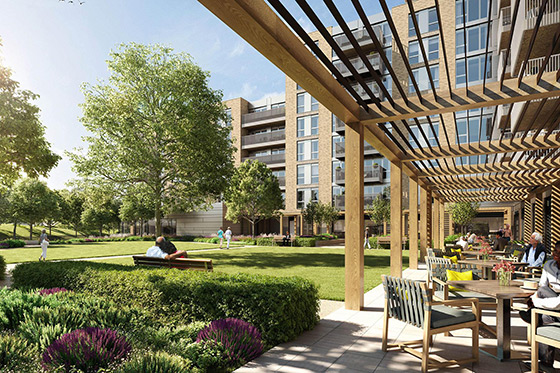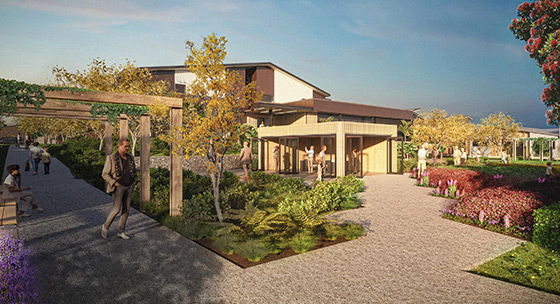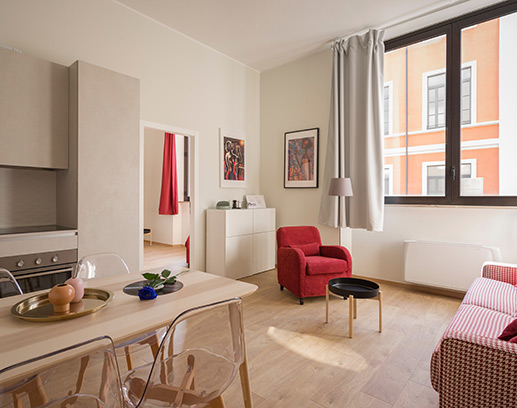Can retirement living bring some life and energy back into our high streets?
What are senior living developments?
2020 has certainly had its challenges, especially for our high streets and local businesses but also the larger retail providers too, many facing going into administration. With the unsurprising demographics and lack of supply of senior living in place it is no wonder that operators and developers are looking for alternative sites and options in order to progress. The range of retirement development is ever increasing, from smaller ‘light touch’ developments to the bigger senior living villages offering to an increasingly discerning elderly population social facilities such as restaurants, bars, gyms, facilities for meetings and clubs, shops, hairdressing salons, therapy rooms, laundries, cash machines, post boxes and swimming pools.
Arguably these ‘essential’ services and facilities that residents look for wouldn’t need to be delivered onsite if more senior living schemes were located within town centres where they are already abundantly available.
So what is senior living? Mayfield Watford is the first example of a new Care Community concept from developer/operator Audley Villages. Located to the south west of Watford City Centre, the scheme has been carefully integrated to form an important element of the wider Riverwell Development masterplan. The Mayfield Care Community will provide an environment that is supportive of the needs of older people and is also a working component of the wider fabric of the city or town in which it is situated. The concept is founded on the key principles of adults 55 years or over living comfortable, fulfilling and independent lives with the flexibility to add as much, or as little, care and support as needed. The design is two buildings that define a new street and generous communal gardens, providing a high-quality and pleasant environment that will contribute to the establishment of the Riverwell Development as a new residential district within Watford’s heartland.

There is a key economic and revitalising benefit to bringing retired people to live in town centres, many of whom remain in their prime, have large disposable incomes, are social, fit and active. Their footfall can play a strong and positive role in supporting town centre uses at time of the day that are often quieter. The ‘grey pound’ now accounts for £320bn of annual household spending and the over-50s hold over three-quarters of the nation’s financial wealth. More needs to be done to encourage senior people to frequent town centres, and what better way than if they already live and hang out there.
The number of people across the UK aged over 65 years is projected to grow from the current 12.2 million to 16.0 million by 2035. Old age is no longer seen as a single, defined way of life as it was in the past, resulting in an increasing diversity among older people in terms of age, culture, wealth, ability and lifestyles. There isn’t currently enough suitable housing stock to meet this future demand, with nearly 60 per cent of ‘surplus bedrooms’ being in households inhabited by over-65s.
Much of the UKs housing shortage could be met by offering senior citizens living alternatives that encourage them to free up their family homes. Homes For Later Living estimate 1 in 4 older people would like to downsize, but feel unable to. Could some of these be met within retail locations?

Where is it happening?
There are several examples of genuine retail repurposing projects in the early stages of planning. Areli are looking at senior living as one of the uses in their redevelopment of the Nicholson Centre in Maidenhead. Similarly, Ellandi are looking to bring in one of their shopping centre assets on the south coast. These schemes would see retirement living as part of a mixed use redevelopment that would bring a range of different ages and uses into the town centre.
McCarthy & Stone announced in July 2020 that they see town centre development at the core of their strategy, seeking empty shops and converting them to homes for the elderly as one of the key components to rejuvenating the high street and helping boost local housing markets. Churchill Retirement Living are actively seeking empty retail units, commercial units, office blocks, car showrooms, pubs and hotels after being earmarked as ideal sites for thriving retirement communities.




